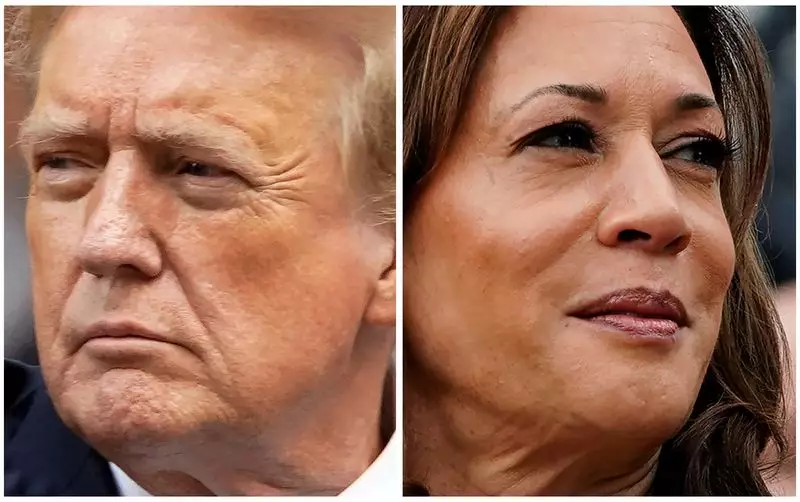In a landscape characterized by increasing financial turmoil, the U.S. budget deficit has reached alarming heights. For the fiscal year 2024, the deficit stands at approximately $1.7 trillion, equating to 6.3% of the nation’s GDP. This marks the third-largest deficit recorded in history, just shy of numbers observed during the height of the COVID-19 pandemic. As the 2024 presidential race accelerates, the implications of this deficit are coming under scrutiny, particularly in the context of the differing proposed policies of Vice President Kamala Harris and former President Donald Trump.
Analysts at Evercore ISI indicate that while the overall budget deficit projections may remain relatively static under the leadership of either candidate, the composition of spending and revenue generation will diverge significantly. Harris is anticipated to propose a sweeping expansion of social programs and infrastructure investments, coupled with increased tax revenue measures focused primarily on corporations and affluent individuals. In a scenario where Harris assumes the presidency while contending with a Republican-controlled Senate, the challenges to passing her proposed revenue-increasing policies could prove formidable; accordingly, the deficit may rise by approximately 1.7% of GDP.
On the flip side, a Trump administration is predicted to emphasize tax reductions and bolster defense spending, potentially at the cost of domestic programs. This strategy could lead to a deficit increase of about 1.8% of GDP. Importantly, though both candidates would steer budgets in contrasting directions, analysts assert that the net effect on the overall deficit would be marginal, rendering significant divergence in fiscal outcomes largely irrelevant from a macroeconomic perspective.
Macro Implications of Fiscal Stimulus
Through simulations utilizing the Federal Reserve’s FRB/US model, the analysts concluded that variations in fiscal policy under either administration would not yield substantial implications for the broader economy. The essence of their thesis reiterates that the macroeconomic ramifications of new fiscal stimulus—regardless of its political origin—would be largely similar under Harris or Trump. Consequently, the immediate emphasis should perhaps shift from the political personas spearheading fiscal policies to the necessity for coherent, long-term strategies addressing the budget deficit itself.
The growing need for robust policy reforms to tackle the deficit is crystal clear. With political pressure mounting, it becomes imperative for both party leaders to prioritize sustainable fiscal responsibility over partisan objectives. The current trajectories of budget management raise questions about long-term economic stability, calling for bipartisan approaches to reform. Absent significant policy shifts, the U.S. may face enduring financial challenges that limit future economic growth and social welfare investments.
While the forthcoming election may shape the nation’s fiscal framework, the core issues of the budget deficit and the need for substantive reform remain paramount. As voters digest the implications of Harris’s and Trump’s potential policies, the focus should consolidate on the ultimate goal of economic resiliency and responsible governance.

